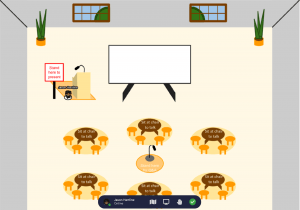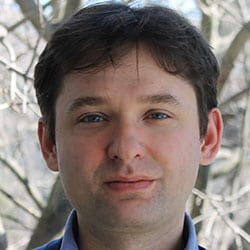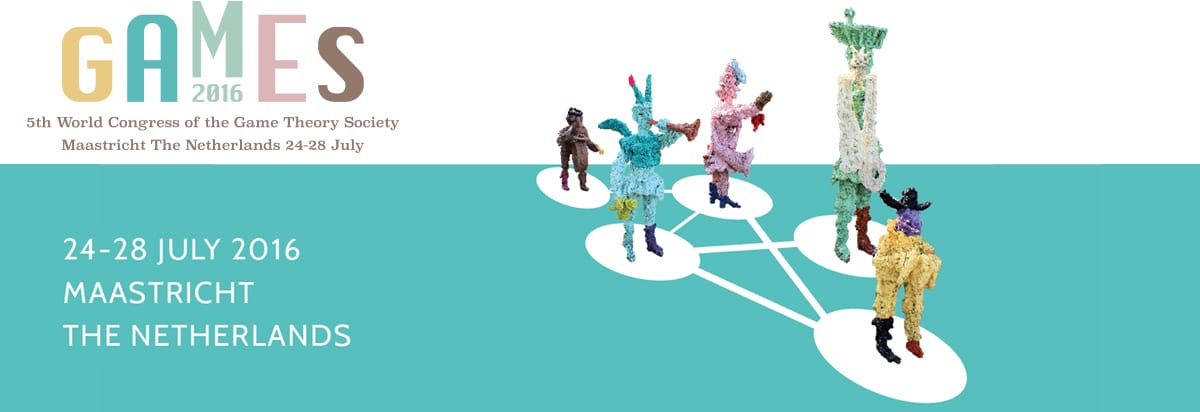By Jason Hartline and Aravindan Vijayaraghavan, Northwestern University.
Due to the pandemic, Northwestern computer science courses for the Fall of 2020 were taught remotely. We co-taught our undergraduate Theory of Computation course in a flipped format on gather.town. It was a fantastic experience. Class time was much more interactive than the Zoom classes we had both taught previously. Also, the students liked that they could interact with other students, and the change (versus yet another Zoom class). It went well and we plan to repeat the experience with our winter courses.
The rough details are as follows.
Flipped-class format
The course was taught in the flipped-class format. We had pre-recorded lectures that the students had to watch before each class. Class time, on the other hand, was spent discussing concepts and working through exercises in small groups.
Videos and Exercises
The model for pre-recorded video was three 15-minute videos, though in practice it was more often two 30-minute videos. Each video had accompanying exercises (implemented using the Canvas Quiz feature). It was recommended for students to interleave the exercise questions with the videos as some exercises were designed to reinforce concepts so as to make subsequent videos easier to understand. They were encouraged to work together on these exercises.
Class on Gather.town
The class time was entirely on Gather.town. The classroom was organized with cabaret seating layout. Students virtually sat at four-person tables (though the capacity was not a hard limit). We gave presentations from a podium at the front of the room and students could ask questions from microphones in the middle of the room. Both the tables and the podium and microphone were enabled by gather.town video chat.
A replica of our classroom is available for self-guided tours. It is recommended to bring a colleague. This classroom was provided to us for beta-testing by virtualchair.net and similar ones are now available from them or you can build your own on gather.town. (Full disclosure: Jason Hartline is a cofounder of virtualchair.net.)
The 80-minute class time was split into two parts. The first half of the class comprised a recap of concepts from the videos and related discussion, and the second half had the students working in groups on a homework-style problem.
Class Part I: Discussion
For the class discussion, we started with a slide of 5-6 discussion questions. This slide was screen-shared from a podium in the virtual classroom. As students joined the class they were encouraged to begin discussing these questions with other students at their tables. After ten minutes we led a discussion of the questions at the podium, encouraging students to chime in with answers from their discussion groups. Our virtual classroom had two microphones among the cabaret seats that students could use to address the class. We also encouraged students to bring up any questions they had.
This part of the class was quite interactive, and it would also give us a sense of how well the students understood the material, and enabled us to reemphasize material accordingly.
Class Part II: Problem Solving
The second half of class was reserved for student problem solving in groups (at their tables). During the problem-solving session we would join tables of students to answer questions, help talk them through issues, and ensure that they were making progress.
Other virtual interactions
The gather.town space had two additional rooms: a study hall and an office hours room. The study hall featured shared whiteboards and was a place where students could meet up for discussions and group work (homework problems were assigned to students in groups of two). The course staff conducted office hours in the office hours room.
Meeting on gather.town was very convenient and meetings of the course staff were also conducted in the virtual office.
Video content in watch parties.
We scheduled video content to be played in watch parties for students to view together the night before class. However, perhaps due to initial technical difficulties, this feature was not utilized by the students.
Difficulties
The following were the main difficulties we encountered. (Configuring the space was fairly easy with the virtualchair.net automation.)
- It was slightly awkward that we could not leave our screenshare at the podium at the same time as we joined group discussions at the tables. This could be addressed by logging into gather.town twice and using one login for screensharing and the other for discussions with students.
- We did not establish a video-on policy and we regret it. While we wanted to respect student privacy, students should be fully engaged in discussions and full engagement warrants videos being on. Moreover, we attempted to grade student participation, but it was difficult to know who is talking when many of the students had their video off.
- Gather.town does not have a simple mechanism for keeping track of participation of students. Our process was manual and difficult.
Student Feedback
The following quotes from student the student course evaluations that pertain to the flipped format and remote technology. Students were generally quite positive.
-
“The flipped format worked really well for this material; it was really valuable to be able to discuss practice exercises with our peers during class.”
-
“Gather.town was a fantastic choice and made me really look forward to attending this class online. Getting to talk and solve problems with teammates really helped me consolidate ideas. (And it was also really nice to be able to socialize a bit.) The flipped classroom style worked really well.”
-
“After the first few weeks, this was certainty my best class in terms of adapting to remote; gather.town discussions were really great (so great my table often stayed after class to continue them!)”
-
“I thought that the gather.town format was an excellent decision. Being able to discuss course topics with other students in the class definitely helped me consolidate ideas. The recorded video lectures were high quality, and the professors both did a great job leading discussion in class.”
-
“It was done on gather.town, which was a bit rocky the first few weeks but got better by the end; really enjoyed discussing with other people about the exercises (wish more time was spent on them actually).”
-
“The practice exercises with our peers were really helpful. Most of the video lectures were clear enough, but being able to discuss points of confusion with classmates was a great way to clear up questions.”
Conclusions
Overall it was a fantastic experience that we are looking to refine in subsequent course offerings. Our virtual gather.town space was for our class only, but it would be natural to use the same space for multiple classes offered within the same department and doing so might encourage more student meetings on the platform. Our idea of watch parties for students to watch videos together needs further adjustments and testing.

 The Computer Science Division
The Computer Science Division

Recent Comments